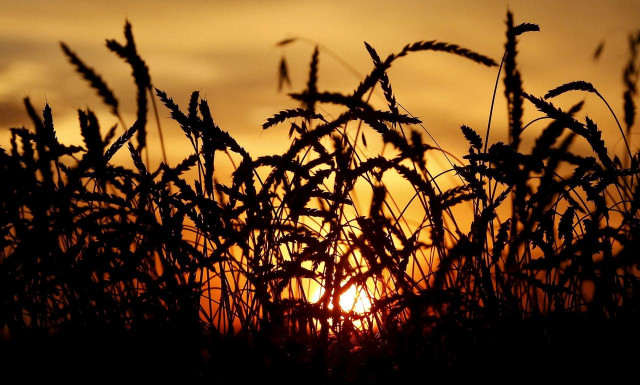Hybrid wheat sowing stressed
It will enhance yield per acre, give reward to farmers for hard work

Hybrid wheat is a target for the wheat seed industry as a way of enhancing yield per acre, but hybrid wheat will only become a success if everyone benefits, including breeders, seed producers, and most importantly, farmers, said researchers.
During an agricultural webinar titled “Wheat Seed Supply Chain Analysis”, researchers from five different countries said that to achieve the target, building trust is essential in this matter so that farmers can get reward for their hard work. Ayub Agricultural Research Institute, Faisalabad, Director-General Dr Abid Meahmood said that currently in Punjab, the yield of wheat was 3.2 tons per hectare.
He cited that experiments showed if farmers use the certified seed, it gives an average of four tons per hectare. In this way, an increase of 0.8 ton per hectare can be achieved by using the certified seed, the worth of which will be around Rs28,000.
The area of land, which will be spared by using the certified seed, will be 1.5 million hectares, which can be used for further yield. “Total certified seed use in Pakistan is only 40% and the share of government sector or Punjab Seed Corporation (PSC) is only 10% in the total seed produced; while the share of private sector in the certified seed is 90%,” Mehmood added.
Speaking on the occasion, Institute of Crop Sciences at the Chinese Academy of Sciences Wheat Mutation Breeder Dr Huijun Guo said in China there are around 150 million hectares of farmland, of which 71% is planted with grain crops and 29% with other crops. She added that in some areas there are two or three crops in a year while the majority of the areas can plant wheat. “Last year, the wheat production was around 133 million tons which could meet the domestic demand. The farmers maintain an overall upward trend in the average yield and last year it stood at 5.6 tons per hectare,” she pointed out. Webinar participants were of the view that companies and the farmers need to have trust in the certification system.
Researchers from Pakistan, while sharing their experiences, said that the wheat and rice cropping pattern is injurious to soil health in the whole Indo-Gangetic plains in general and the saline area of Punjab, in particular, containing the lowest average yield of wheat.
They added that the government was promoting high-value oilseed crops of canola and sunflower in place of wheat crop.
In his closing remarks, MNS-University of Agriculture, Multan Vice-Chancellor Dr Asif Ali Khan said, “If you have to go find hybrids, you have to engage private partners.”
He stated that they were trying to engage private enterprises in the hybrids, which are developed in Pakistan, and they were able to demonstrate success.
THIS ARTICLE ORIGINALLY APPEARED ON THE CHINA ECONOMIC NET
Published in The Express Tribune, September 3rd, 2020.
Like Business on Facebook, follow @TribuneBiz on Twitter to stay informed and join in the conversation.



















COMMENTS
Comments are moderated and generally will be posted if they are on-topic and not abusive.
For more information, please see our Comments FAQ